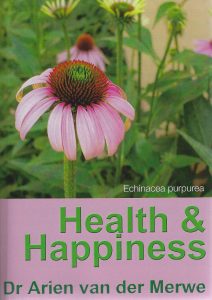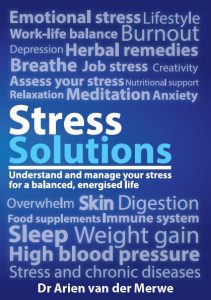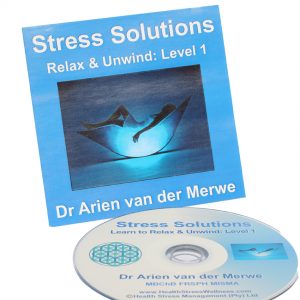My Fabulous Fat Loss Journey 3: Exercise is Medicine
 I watched an awesome TEDx talk, and I decided this will be the next post for my fabulous fat loss journey. To summarise: it was to emphasise how depression is increasing yearly and is now a global epidemic. Clearly antidepressants aren’t working and depression rates are still increasing.
I watched an awesome TEDx talk, and I decided this will be the next post for my fabulous fat loss journey. To summarise: it was to emphasise how depression is increasing yearly and is now a global epidemic. Clearly antidepressants aren’t working and depression rates are still increasing.
Epidemiologist have now identified a number of illness that are rampant and of epidemic proportions throughout the developed world: diabetes, heart disease, asthma, allergies, obesity, cancer and depression. ‘Diseases of civiliation’; therefore diseases of lifestyle. The true underlying cause is renegade inflammation. This is why we focus on prevention, not cure. The good news is that these lifestyle diseases can be prevented and managed. We help you manage your health risks.
Depression is a lifestyle disease in Western cultures and interesting enough not as prevalent in hunter-gatherer groups (e.g. aboriginal groups). The hunter-gatherer groups have extremely tough lives (high infant deaths, parasitic infections, violent deaths). So why is it that depression is so low amoung them? What is protecting them?…
LIFESTYLE! There are 8 natural anti-depressant factors that play a role in treating this illness (researched by Stephen ILardi and his team):
- Exercise
- Anti-inflammatory food choices
- Omega 3’s (Essential Fatty Acids) and other plant oils
- Sunlight (Vit D: The Sunshine Vitamin)
- Healthy sleep (The Importance of Sleep)
- Contemplative activity through mind training, to teach one how to deliberately choose to move from ruminative, repetitive mulling over fears, worries, stress, to higher emotional frequencies of peace, joy, love, happiness.
- Daily meditation and relaxation practice (Stress Solutions Book & Relaxation CD)
- Social connection
This article will focus on exercise. We all know exercise is good for us, but who actually incorporates exercise into their daily lives? Approximately 60% of people don’t get physical activity on a regular basis. Many people have problems making it happen. This is why I developed my FitSMART Guide. Easy, practical, 15 minute exercises using your own body for resistance (Fit-in-15 Workouts). No expensive equipment or gym fees, just your own body.
Many of our patients, when they first start thinking about exercising, say: ‘I am too busy to exercise, I don’t have time’ or ‘I hate the gym, so that’s why I don’t exercise’. The excuses are endless. The most important thing that I want to highlight is: STOP MAKING EXCUSES, like Nike’s slogan: Just do it! I actually incorporate extra physical activity (an extra Fit-in-15 Workout) if I didn’t eat 100% correct or had too much food. Try it, you feel amazing afterwards.
Hunter-gatherer groups across the world get 4 or more hours of physical activity daily. If you ask them, they will say they don’t workout at all. And guess what? They don’t. They just live.
As Stephan Ilardi says: ‘We were never designed for the sedentary, indoor, socially isolated, fast-food-laden, sleep-deprived, frenzied pace of modern life.’
Due to long term stress (that doesn’t dissipate), toxic to the body and brain, neurochemicals are affected; incl. dopamine, serotonin, acetylcholine and glutamate. This disruption can lead to depression and damage the brain when left unchecked (incl. the hippocampus – memory centre), prefrontal cortex (personality traits) and triggers inflammation throughout the body and brain. An inflamed brain is a depressed brain.
Exercise is probably the most effective lifestyle adaptation that there is. Exercise enhances health by improving quality of life, while lowering the risk of developing chronic lifestyle diseases (incl. diabetes, metabolic syndrome, heart disease, osteoporosis, arthritis, etc). The World Health Organisation recommends at least 30 minutes of regular physical activity with at least moderate intensity most days of the week (on average 5 days), for general health and disease prevention. Some experts recommend that it is better to exercise for 10-15 minutes once a day, every day, rather than 30-40 minutes only 3 times a week. The morning routine can include anything you enjoy: yoga, tai chi, dance routines, or working out with light weights. For the evening routine, try walking, high intensity interval training (HIIT), strength training or dancing is recommended. Try my FitSMART Guide for effective 15 minute workouts (Fit-in-15) in the comfort of your own home and take the guess workout of it.
Exercise benefits
Exercise changes the brain and body in so many beneficial ways. It’s effects are more powerful than any pill you can take! Exercise is widely accepted for its many positive effects on the body and mind (hence the concept of exercise as medicine), which include the following: cardiovascular, respiratory, immune, nervous, musculoskeletal and endocrine systems.
Some benefits of exercise
- Protects the heart and circulatory system – exercise reduces C-reactive protein (an indicator of heart disease and inflammation in the body) and lowers blood pressure.
- Improves your lipid profile – by increasing high density lipoprotein or HDL (‘good’) cholesterol while decreasing low density lipoprotein or LDL (‘bad’) cholesterol, triglycerides and total cholesterol.
- Reduces obesity risk – by improving body composition: exercise decreases fat mass while increasing muscle mass. Exercise can also lead to fat loss and improved weight management.
- Improves muscle and bone health – by increasing muscle mass and strength (leading to a toned and streamlined body) as well as increasing bone density and strength. Exercise can reduce the risk of osteoporosis and osteoarthritis.
- Improves mental health – by decreasing stress, anxiety and feelings of depression, while improving your mood. Exercise also increases energy levels and allows for improved and more restful sleep.
- Improves immune function – by decreasing chronic inflammation.
- Improves insulin and glucose levels – by normalising blood glucose levels, therefore increasing glucose tolerance (by the cells) and improving insulin sensitivity, in turn decreasing insulin resistance. Exercise supports insulin by moving glucose from the bloodstream into the cells where it can be utilised for energy or fuel.
It’s obvious: physical exercise is an essential element for optimal health, wellbeing, disease prevention and management!









